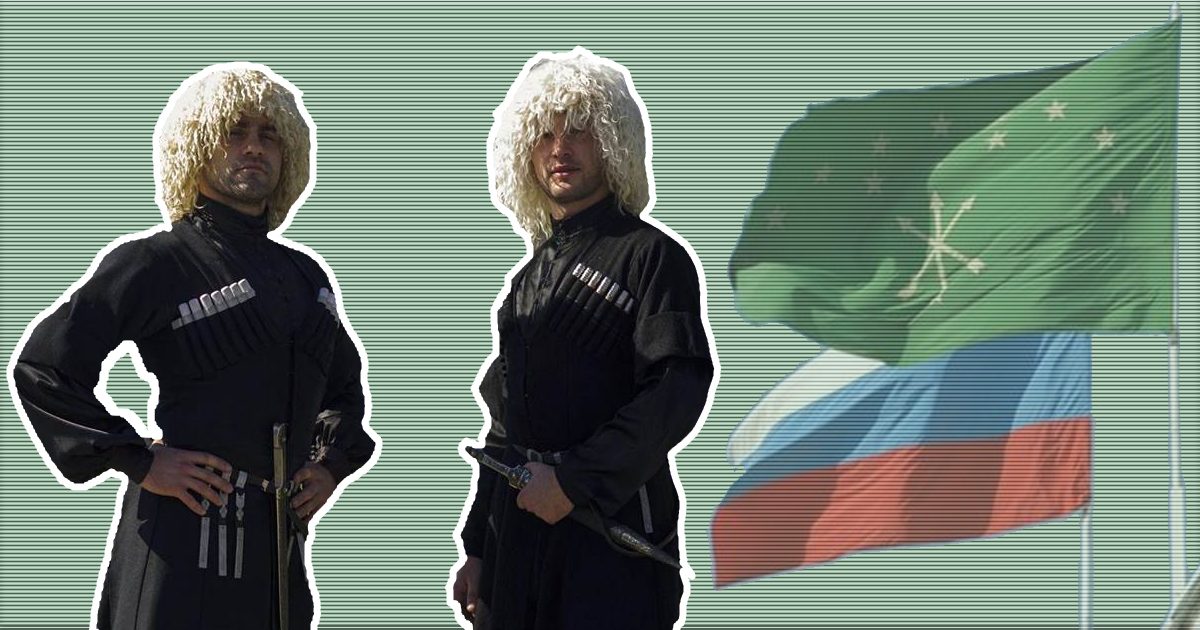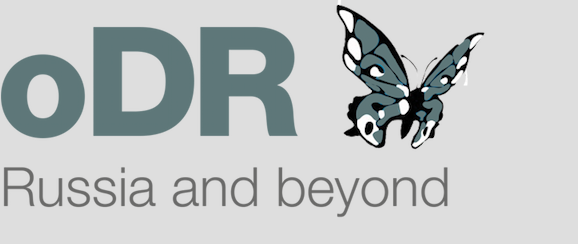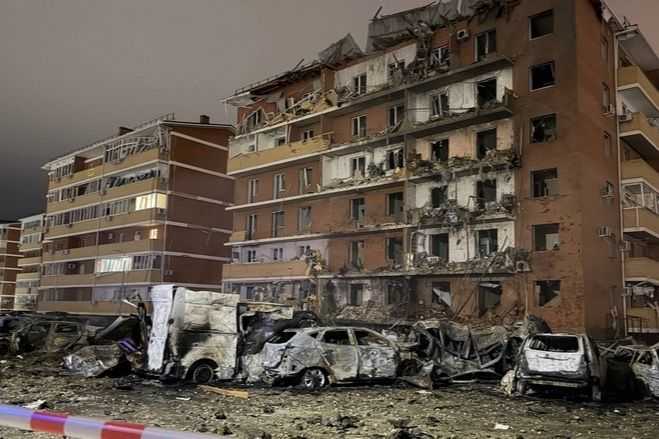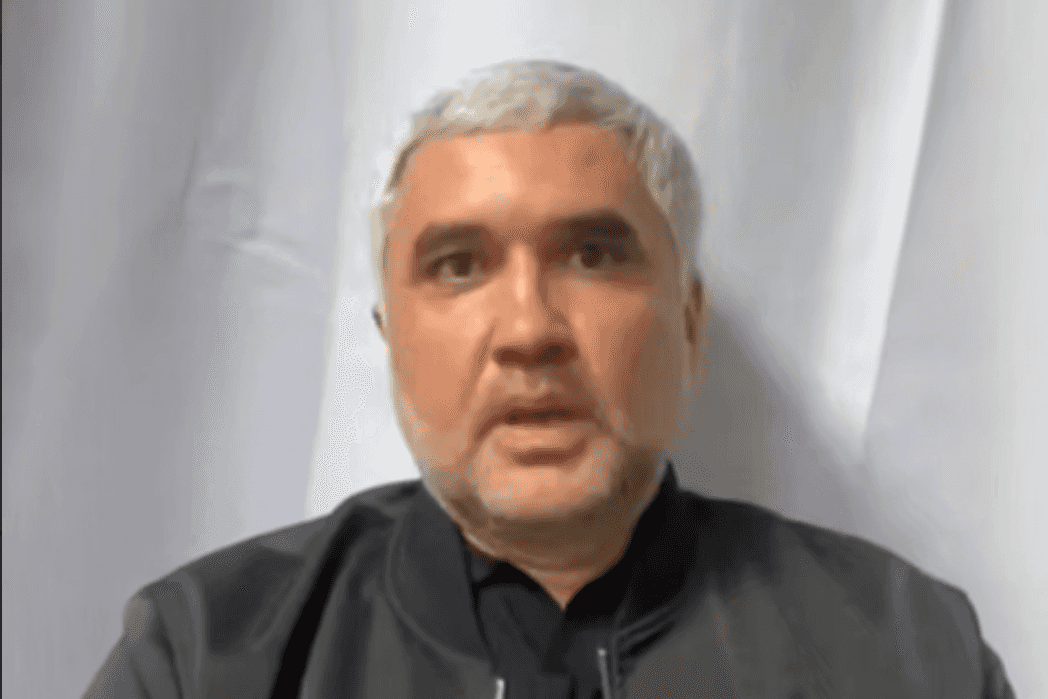

As Russia’s 2020 census approaches, a campaign for Circassians to label themselves not as Adygeans, Kabardians, Shapsughs, and Cherkess, but as Circassians, has breathed new life into the nationalist movement.
On 9 March, activists in Cherkessk, the capital of Karachay–Cherkessia, announced the creation of a new organisation — the Coordination Council of Circassian Activists. One of its first priorities, they said, was to support a campaign to abolish an anachronism dating back to Soviet-era ‘nation building’ — the use of ethnic identity to artificially divide the Circassian people into four different groups: Adygeans, Kabardians, Shapsughs, and Cherkess.
Circassians have long been an international ethnic community, who have a wide network with considerable economic and political potential. But de jure, in Russia, the name is used only for Circassians (Cherkess) living in Karachay–Cherkessia.
Whether the active part of the Circassian community can use this potential to become a new and united political nation will depend on how attractive the organisation’s ideas are — and the political and economic methods they will embrace.
It’s more than just a name
Over the thousands of years that the Circassians have been a part of world history, they have been given many names by those who came into contact with them: Zygians, Kasoghs, Pyatigortsy, and others.
But the term ‘Circassians’ has been used in the written traditions of various peoples since the 13th century. In the 15th century, the Mamluk-Burji dynasty and its Egypto-Syrian Empire also used the term.
By the 17th century, it had squeezed out all the other names of these people in other languages and the name Circassia had become synonymous with the people and their country all over the world. And it remains so today, including for Russian speakers.
In the 1920s, with the establishment of the Soviet Union, the Soviet authorities adopted a policy of creating new ethnicities on the basis of Circassian enclaves that had been dispersed after the ethnic cleansing at the end of the war in the North Caucasus in the 19th century. The Soviets attempted to symbolically and administratively split up the remaining Circassians, and the ethnic nomenclature system created at the time still serves Moscow’s purposes today.
Moscow’s logic is clear: the name of a people is always more than just a name. It encompasses rights and responsibilities, a declaration of its dignity, claims to a legacy and prestige, and a blueprint for the future.
Even after the demise of Circassia in 1864 and the deliberate oblivion to which it was consigned in the Soviet period, the shadow of this formidable opponent of the Russian Empire in the western Caucasus still hangs over Russia’s southern dominions. And the issue of the legitimacy of its control by Moscow is still open.
Like it or not, however, the Caucasian War (1817–1864), which led to Circassia being wiped off the map, is objectively still at the heart of Russo–Circassian relations. And the memory of that disaster and the profound resentment caused by its consequences, as something unalterable, is the central element of Circassian identity to this day.
Neutralising Circassia as a political entity and maintaining an ‘ethnic balance’ in the region, a ‘balance’ achieved through completely wiping the Circassians from their homeland, was and still is Russia’s policy on the ‘Circassian question’. There is nothing to suggest that this might change under the present government.
The very word ‘Circassian’ is instinctively seen as a threat. The victory of the Empire over those who bore that name came at too high a price.
This is why in today’s Russia if someone doesn’t live in Karachay–Cherkessia but calls themselves a Circassian, they are making a political statement even if they have no interest in politics.
A novel in letters
The revival of a Circassian national movement as a political factor in Russia began nearly 30 years ago, when the First International Circassian Congress concluded in May 1991 in Nalchik, the capital of Kabardino-Balkaria. This was a landmark event that promised to be the beginning of a renewed unified structure for this exiled people that has been scattered to the four corners of the earth: up to 90% of them live outside their historic homeland.
The congress brought together delegates from Turkey, Syria, Jordan, Germany, the US, Yugoslavia, and Israel, as well as various regions of the Soviet Union — Moscow, the Krasnodar and Stavropol krais, Adygea, Karachay–Cherkessia, and Kabardino-Balkaria itself. Conference delegates decided, among other things, to revive the name by which they had been known for centuries, ‘Circassians’.
Although those attending the congress may have believed that the issue was in principle resolved, as Adygea and Kabardino-Balkaria were represented by government delegations who voted unanimously to reject the ethnic term forced on them by Moscow, time has shown that things were not what they seemed.
Initially, in the 1990s, the International Circassian Association (ICA) formed at the congress lived up to its name and was actively engaged in creating a new agenda for the Circassian national movement. Today it has become a mere adjunct to the Russian propaganda machine. But back then, the association put together numerous submissions to the Russian Government at all levels, including demands for the restitution of an official single Russian name to describe themselves.
A symbol of faith
In 1997, on the initiative of the ICA, the Secretary-General of the Unrepresented Nations and Peoples Organisation (UNPO), Michael van Walt van Praag, wrote to Yegor Stroyev, head of the Russia’s Federation Council, asking Russia to not only recognise the 1864 Circassian Genocide, but also to recognise the Circassians as a people in exile and create reasonable conditions for their repatriation. Van Walt van Praag’s missive included the following requests:
‘To recognise those who are at present known as Circassians in Karachay–Cherkessia, Kabardians in Kabardino-Balkaria, Adygeans in Adygea and Shapsugs in the Krasnodar Krai, as well as ethnic Circassians (Adyghe) living in the Russian Federation and outside it who traditionally refer to themselves as Adyghe, but are regarded as Circassians by others, given that all Circassians (Adyghe) share a common language, culture, etiquette and, most importantly, an epic, the Nart Saga.’
The UNPO document is interesting for the fact that it practically defined the ‘credo’ of Circassian nationalism: a profound certainty in the indissoluble spiritual link between every man and woman who considers themselves a Circassian, whatever their citizenship, faith or country of residence.
Links that will sooner or later lead to the physical reunification of the exiled people with their homeland, since no Circassian will ever regard their forced separation as permanent. To accept such a situation could mean a person’s lifelong exclusion from the Circassian community.
There is no point in reminding people of all the stages of correspondence with the Moscow authorities: it had almost no practical effect. And the lack of success that resulted in the ICA’s work turning into a meaningless ritual ‘for the initiated’, unclear and of no interest to the masses, allowed the Russian government, in the end, to co-opt it with little trouble.
Bluff and technology
No one can say how long things might have continued in this way, but suddenly the Circassian nationalists were rescued by a combination of American technology and good old Russian bluff.
This painful picture was radically changed by the rapid spread of the internet and Russia’s successful bid to host the Sochi Winter Olympics in 2014, which coincided with the rise of a new generation of Circassians.
During the 2000s, young Circassians had full access to the possibilities provided by the internet, which had finally spread like wildfire among them. First internet forums and then social media groups became a focus for meeting people, exchanging ideas, and crystallising a core of a new generation of Circassian nationalists.
For the first time in 150 years, people living in dozens of countries around the world, but mostly in Turkey and Russia, suddenly had an opportunity for direct contact and could coordinate their positions and plan public actions together without any mediation from ‘professional Circassians’ in the pockets of the Turkish and Russian authorities.
The majority of Circassian activists who appeared in the 2000s and 2010s had come through the school of internet battles. It only remained to locate a concrete blast-off point. And one soon appeared. It was presented to them by Russia itself, when the country was chosen as the host nation for the 2014 Winter Olympics in Sochi.
The Black Sea city of Sochi holds a special place in Circassian history. It was the home of the ‘Great Free Assembly’ in 1861, the parliament of the independent Circassian Confederation.
The last battles of the Caucasian War took place here and the entire beach is one big cemetery, with thousands of people lying in mass graves. These people were driven onto the shore by Russian troops and died as they awaited deportation to the Ottoman Empire.
Here, in the mountains, Grand Duke Mikhail Romanov took the victory salute in 1864, celebrating the destruction of Circassia and the culmination of the colonisation of the Caucasus.
The Sochi Olympic Games were planned to coincide with the 150th anniversary of those celebrations, although, as it turned out, there was no specifically Circassian component planned for the event. The whole thing appeared to be — and indeed was — an attempt to comprehensively wipe the memory of the Circassian people from the history of these parts. But it had the opposite result.
‘I’m a Circassian, are you?’
In 2007, the news from Guatemala announcing the choice of venue for the Olympics provoked an instant reaction on the internet. At first, no one knew what to do about it, but a protest action was soon put together demanding the recognition of the Russian Empire’s genocide of the Circassian people. This demand, breaking like thunder during the 1990s but gradually becoming quieter in the 2000s, spread through the international press.
These events gave new momentum to the process of integration in the Circassian community, mobilising the most active people. They also coincided with a campaign leading up to the 2010 Russian census at a time when the internet provided opportunities for publicity and recruiting supporters, as well as coordinating activists’ efforts in other countries.
Both these subjects later dropped from the headlines as the Circassian community’s attention switched to helping evacuate people from Syria, home to one of the largest Circassian diasporas in the world. Thanks to the efforts of private donors, coordinated through social media, around 2,000 Syrian Circassians were repatriated to their historic homeland, albeit as labour migrants and restricted by quotas originally allotted to Adygea and Kabardino-Balkaria.
This tragedy allowed the subject of Circassian repatriation to be raised with Moscow, but in 2012, it was already clear that Russia wasn’t interested in talks. The futility of hoping for a constructive dialogue with the current Russian government had already been proven.
Later, in correspondence with the UN’s High Commissioner for Refugees, a problem emerged: Syrian Circassians are nowhere officially treated as Circassians in Russia. This has complicated the assertion of their interests, which in its turn, has reminded Russian Circassians of their own situation.
Today, a new campaign for a single Russian language term for Circassian ethnic identity has begun in the run-up to the Russian national census in 2020. A new hashtag, #ImACirassianAreYou? has appeared, a thematic mail-out has been organised, and there is an entire galaxy of Circassian groups on social media and messaging services, as well as close coordination with the media.
Today’s technology and resources are reaching their target audiences so much more easily than nine years ago, helped, apart from anything else, by the universal smartphonisation of the populace.
The arrival on the internet of new people, including members of an older generation who knew life in the USSR and have little idea of today’s Circassian national discourse, makes it imperative to repeat a lot that internet veterans have known for some time. But at the same time, practically every Circassian family in Russia is now aware of the issues.
The prospects for nationalism
Boston University professor Liah Greenfeld, a leading specialist in nationalism, wrote in her work Nationalism. Five Roads to Modernity that ‘Nationalism is the foundation of today’s world… It is nationalism that has created our world as it is … Nationalism is the defining principle of modernity’.
I have quoted this extract in order to avoid explanations of why and in what context the term ‘Circassian nationalists’ comes up. People involved in the creation or reconstruction of a nation are everywhere described as nationalists — before the nation has been built, at any rate. The idea of a nation has no meaning outside of nationalist discourse. And without a political nation, it is impossible to build a modern democratic society.
The crisis that the Circassian community finds itself in can be resolved either by its complete destruction or an innovative breakthrough. Today’s unwilling pioneers are forced to operate in a terra incognita, as they have no examples to copy. Neither Jewish, Armenian, Irish, nor Tibetan experiences are any use here as direct models, although they are all worthy of notice, as is the role of the Chinese diaspora in the massive rise of the Chinese economy.
The alternative to a totally predictable, dependable, and ignominious disappearance after a bleak and wretched existence has to be a move into the unknown and experimentation.
 This article was produced in partnership with Open Democracy Russia. A similar version is available on their website. The opinions expressed in this article are author’s alone, and do not necessarily reflect the views of OC Media’s editorial board.
This article was produced in partnership with Open Democracy Russia. A similar version is available on their website. The opinions expressed in this article are author’s alone, and do not necessarily reflect the views of OC Media’s editorial board.








